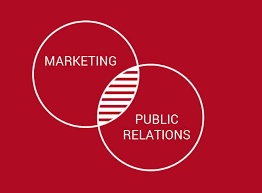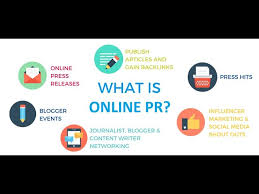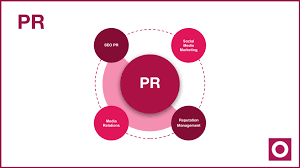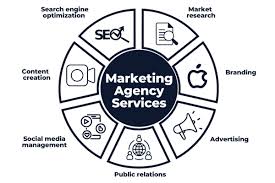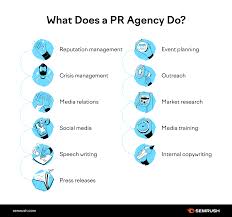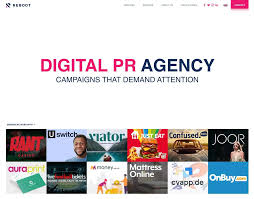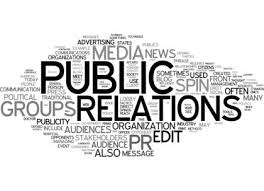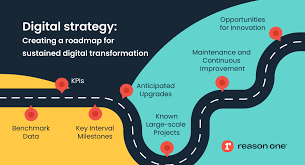Unlocking Success: The Power of PR in Today’s Business Landscape
The Role of PR in Today’s Business Landscape
Public Relations (PR) plays a crucial role in shaping the reputation and image of a business in the modern world. In today’s fast-paced and interconnected business landscape, effective PR strategies are essential for building trust with stakeholders, managing crises, and enhancing brand visibility.
One of the key functions of PR is to establish and maintain positive relationships with various audiences, including customers, investors, employees, and the media. By communicating transparently and authentically, businesses can build credibility and trust, which are vital for long-term success.
PR also plays a critical role in managing crises and mitigating reputational damage. In times of crisis, a well-prepared PR strategy can help businesses navigate challenges effectively, protect their reputation, and maintain stakeholder confidence.
Furthermore, PR is instrumental in enhancing brand visibility and awareness. Through strategic communication initiatives such as media relations, content creation, and influencer partnerships, businesses can reach a wider audience and strengthen their brand presence in the market.
In today’s digital age, social media has become a powerful tool for PR professionals to engage with audiences directly and amplify brand messaging. By leveraging social media platforms effectively, businesses can connect with customers in real-time, gather feedback, and build strong relationships that drive loyalty and advocacy.
Overall, PR plays a multifaceted role in today’s business landscape by shaping perceptions, managing relationships, mitigating risks, and driving brand growth. As businesses continue to navigate an increasingly competitive and complex environment, investing in strategic PR initiatives is essential for building a strong reputation and achieving sustainable success.
Understanding Public Relations: Key FAQs Answered
- Whats does PR mean?
- What is good PR?
- What is PR and marketing?
- What does PR specialist do?
- What does the PR mean?
- Who is PR in company?
- What is an example of PR?
- What are the 2 types of PR?
Whats does PR mean?
Public Relations (PR) is a strategic communication practice aimed at managing and shaping the reputation of individuals, organisations, or brands. PR professionals work to build positive relationships with various stakeholders, including the media, customers, investors, employees, and the public. Through targeted messaging and storytelling, PR seeks to enhance brand visibility, credibility, and trust. PR encompasses a range of activities such as media relations, crisis management, event planning, content creation, and social media engagement. Ultimately, PR plays a vital role in influencing perceptions, fostering goodwill, and driving business success in today’s dynamic and interconnected world.
What is good PR?
Good PR, or Public Relations, is characterised by strategic communication efforts that effectively manage and enhance the reputation of a business or organisation. It involves building positive relationships with stakeholders, including customers, investors, employees, and the media, through transparent and authentic communication. Good PR strives to create meaningful connections with audiences, convey key messages clearly and consistently, and engage in proactive reputation management to address challenges and opportunities. Ultimately, good PR focuses on building trust, credibility, and visibility for a brand in a way that resonates with its target audience and contributes to long-term success.
What is PR and marketing?
Public Relations (PR) and marketing are two distinct but closely related disciplines that play key roles in enhancing a company’s reputation and driving its success. PR focuses on managing relationships with various stakeholders, including the media, customers, and the public, to build trust and credibility. It involves strategic communication efforts aimed at shaping public perception and maintaining a positive brand image. On the other hand, marketing is more focused on promoting products or services, generating leads, and driving sales through targeted campaigns and messaging. While PR aims to build long-term relationships and enhance reputation, marketing is often more transactional, aiming to drive immediate results. Both PR and marketing are essential components of a comprehensive communication strategy that works together to achieve business objectives effectively.
What does PR specialist do?
A PR specialist plays a pivotal role in managing and enhancing the public image and reputation of a company or individual. Their responsibilities typically include developing and implementing strategic communication plans, cultivating relationships with the media, drafting press releases, organising events, and monitoring public perception. PR specialists work to ensure that their clients maintain a positive presence in the eyes of their target audience by effectively communicating key messages and responding to inquiries or crises in a timely and professional manner. Their expertise lies in crafting compelling narratives, building brand awareness, and fostering positive relationships with stakeholders to ultimately support the overall goals and objectives of the organisation they represent.
What does the PR mean?
Public Relations (PR) is a strategic communication practice that focuses on building mutually beneficial relationships between an organisation and its various stakeholders, including customers, employees, investors, media, and the public. PR aims to create and maintain a positive reputation for the organisation by managing how it communicates with these audiences. This involves activities such as media relations, crisis management, event planning, content creation, social media engagement, and more. Ultimately, PR plays a critical role in shaping perceptions, enhancing credibility, and fostering trust in an organisation’s brand and values.
Who is PR in company?
In a company, PR, which stands for Public Relations, refers to the function or department responsible for managing the communication and relationships between the organisation and its various stakeholders, including customers, investors, employees, media, and the public. The PR team plays a crucial role in shaping the company’s reputation, enhancing brand visibility, and maintaining positive relationships with key audiences. They are tasked with crafting strategic communication plans, engaging with the media, coordinating events, managing crises effectively, and promoting a positive image of the company to build trust and credibility in the market. Ultimately, PR professionals act as ambassadors for the company, ensuring that its messaging aligns with its values and objectives while fostering strong connections with external parties.
What is an example of PR?
Public Relations (PR) encompasses a wide range of strategies and tactics aimed at managing and enhancing the reputation of a business or organisation. An example of PR in action could be a company launching a new product and organising a press conference to announce it to the media. By inviting journalists, bloggers, and influencers to the event, the company can generate buzz and coverage for the product, reaching a wider audience through various media channels. This proactive approach to engaging with the media is just one example of how PR can help businesses create positive visibility and build relationships with key stakeholders.
What are the 2 types of PR?
Public Relations (PR) encompasses various strategies and tactics aimed at managing and enhancing a company’s reputation. In the realm of PR, there are generally two main types: corporate PR and product PR. Corporate PR focuses on building and maintaining a positive image of the overall company, managing relationships with stakeholders, handling crises, and shaping the corporate brand identity. On the other hand, product PR specifically promotes and creates awareness around individual products or services offered by the company, highlighting their unique features and benefits to target audiences. Both types of PR play a vital role in shaping public perception and driving business success.



